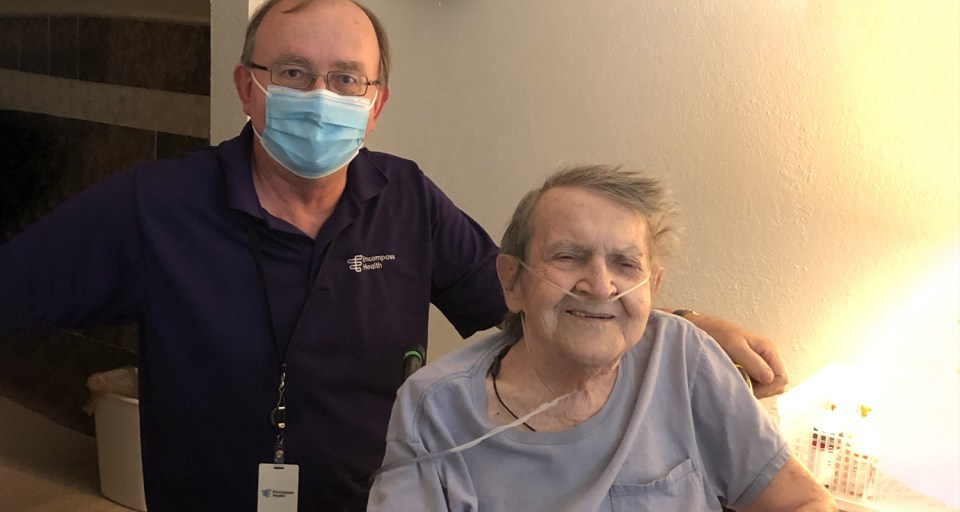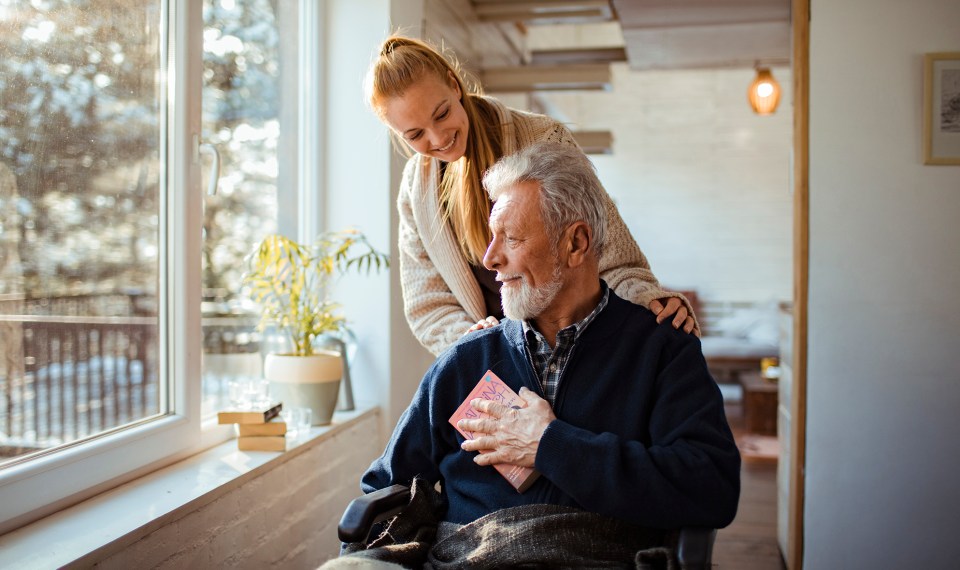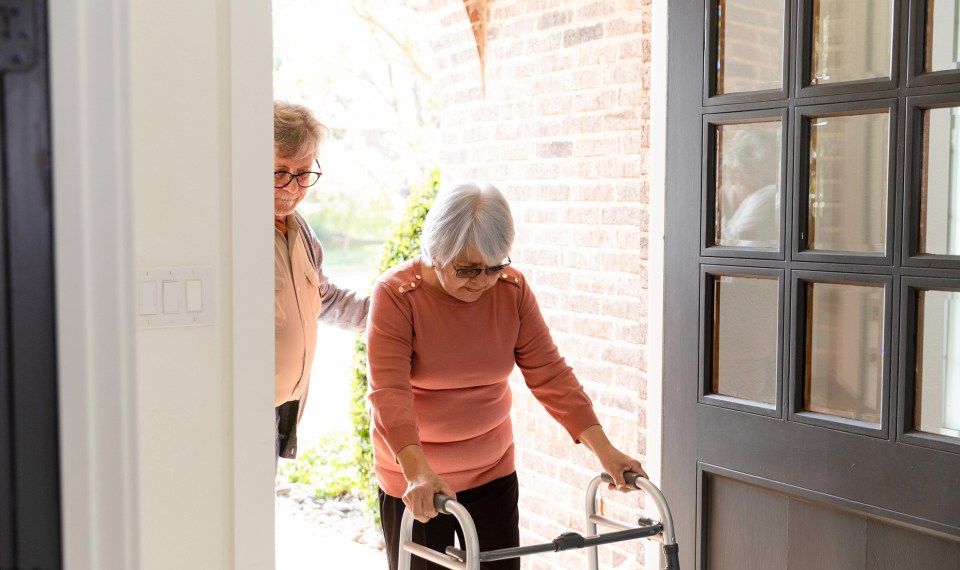When facing a terminal diagnosis, it’s common for many people to experience complex emotions and turn toward spirituality for comfort at the end of life. While other members of the hospice care team tend to a patient’s physical and psychological needs, spiritual care is provided by the hospice chaplain.
Hospice chaplains are licensed professionals who plan, assess and care for a patient’s spiritual needs during their end-of-life journey. While spiritual care is covered under the Medicare hospice benefit, it is an optional service for each patient to use.
Kenneth Dugger is a chaplain with the Encompass Health hospice team in Denver, Colorado. While he originally began his career as a civil engineer, Dugger started volunteering with a campus-based college ministry at a local junior college. It was through this experience that Dugger felt called to attend seminary school.
After graduating from seminary school, Dugger spent 22 years in pastoral ministry, with the last 12 of those years working primarily in pastoral counseling. It was then that he decided to make the switch to work in hospice care.
“It’s a privilege to walk with people during a difficult season of life, for which we don’t know the depth or length of that season,” said Dugger. “Hospice care is very authentic, with our patients and families being very real and genuine about their situation and needs.”
How hospice chaplains help patients
Hospice chaplains serve as a valuable and compassionate resource for patients during the end of life to ensure they receive the spiritual care they need according to their beliefs and wishes. A chaplain helps guide patients by helping them explore commons feelings like anger, depression or guilt as well as questions surrounding the meaning of life to help them find peace and comfort.
“My philosophy is to just meet patients where they are,” said Dugger. “I don’t come into a patient visit with a certain agenda. Instead, I just try to talk about life, and out of life usually comes existential pain.”
By observing and identifying things that patients enjoy, Dugger is able to make stronger connections with those who may not be open to talking to a chaplain at first.
“If I have patient who is apprehensive of me at first and I notice them watching basketball during my visit, I try to start up a conversation on that topic,” said Dugger. “Next thing you know, they’re inviting me to watch the next game with them. Then three visits later, they finally open about deeper topics that I’m able to help them through.”
For some patients, Dugger serves more as an ear to listen rather than someone who provides spiritual guidance.
“It’s common for the aspect of spiritually to never come up with some patients,” said Dugger. “Instead, I’m asking them about what’s going on in their life or how their family is doing. I’m listening for important bits of information that I can take back to the patient’s social worker to help them receive the right care and resources, if needed.”
How hospice chaplains help families and caregivers
Hospice chaplains also play an important role in providing emotional and spiritual support to the patient’s family and caregivers. Families can be strongly impacted by the patient’s diagnosis and have the same feelings of uncertainty regarding the end of life. Chaplains are also able to help plan memorial services and offer bereavement services for families up to 13 months after the patient passes.
“Caregivers are generally exhausted, worn out and have their own set of problems,” said Dugger. “I come in as someone who can just listen, provide counsel or assist with final plans.”
“I recently visited a caregiver of one of our patients. We sat on the porch and talked for a long time. At the end of our visit, she told me how easy I was to talk to and that her friends and family just don’t get what she’s going through. I was able to assure her that her thoughts and feelings weren’t wrong and were actually very valid.”
How hospice chaplains support the rest of the hospice care team
In addition to the critical support they provide patients and families, the hospice chaplain also assists other members of the patient’s hospice care team. As they do with patients, chaplains understand the spiritual needs of their fellow team members and recognize the tough situations they are faced with every day.
By understanding the unique spiritual and emotional needs of each patient, the hospice chaplain can also help make informed improvements to a patient’s plan of care. Chaplains can provide insight to other members of the care team on certain medications, practices or other forms of care that may or may not align with the patient’s wishes.
“I recently had a nurse on our care team who asked me to come with her to a patient’s home after learning they had passed, as she knew it would be hard,” said Dugger. “At the end of the visit, I could tell the nurse was struggling, so I called our branch director and told her that this nurse needed the rest of her visits covered so she could take the day off.”
“I called another nurse on our team and asked if she would check in on her too. A few minutes later, I was surprised when that nurse called me back and told me to meet her at the nearest coffee shop so we could chat.”
“This was such a touching moment for me because I was able to recognize that my teammate needed extra support, but she also realized I needed it in that moment too,” said Dugger. “Hospice work is not easy and I believe making sure our staff feel valued, cared for and appreciated is part of my calling.”
While everyone’s end-of-life journey is different, hospice chaplains help patients receive the care they need to feel comfort and compassionate in their final days.
“Being a chaplain means I can make a difference and bring value to our patients and their families,” said Dugger. “I hope that by providing these moments of support and comfort that I’m able to be a light in a dark time, and ultimately bring peace to hospice patients and their families.”
The content of this site is for informational purposes only and should not be taken as professional medical advice. Always seek the advice of your physician or other qualified healthcare provider with any questions you may have regarding any medical conditions or treatments.



